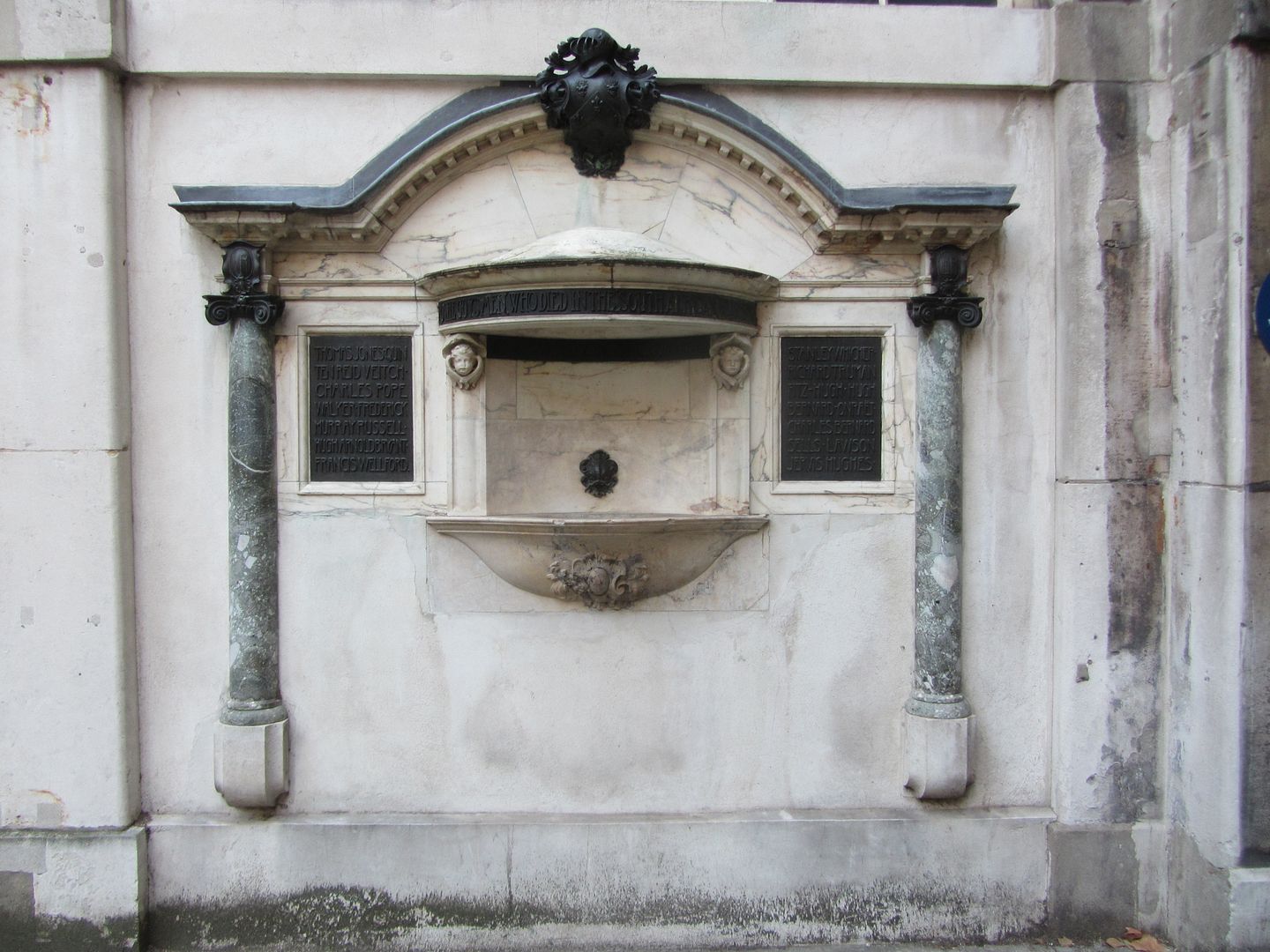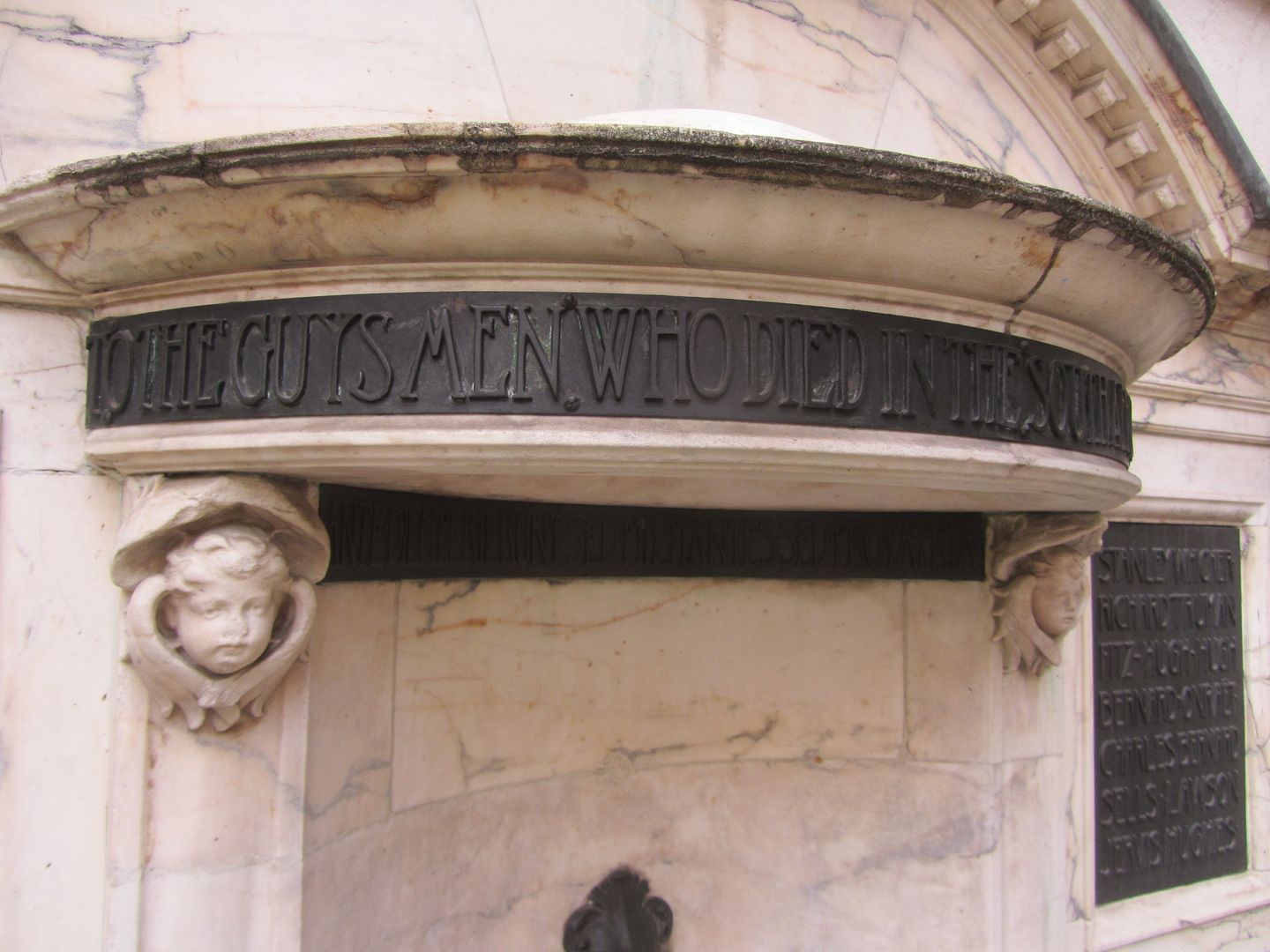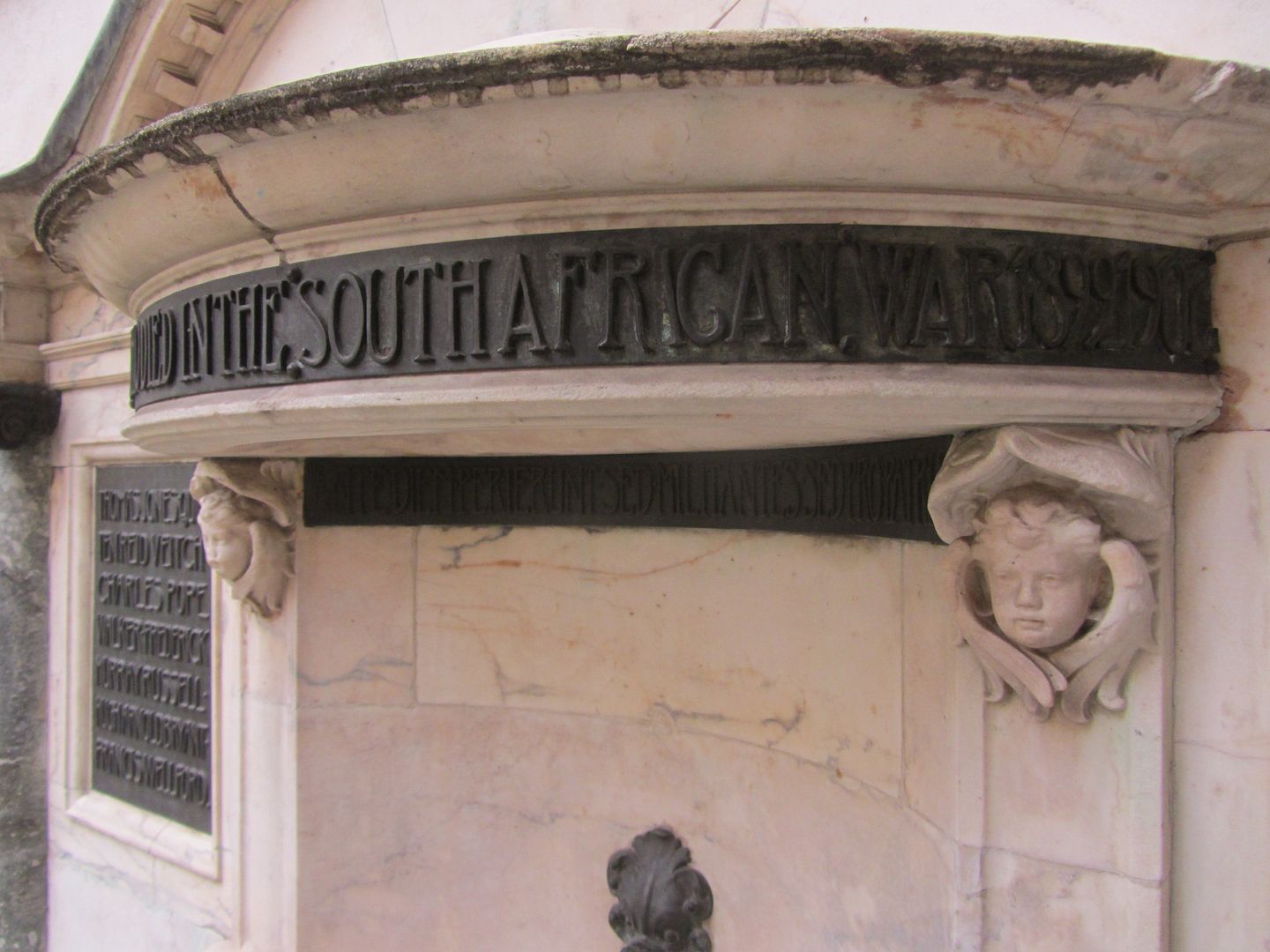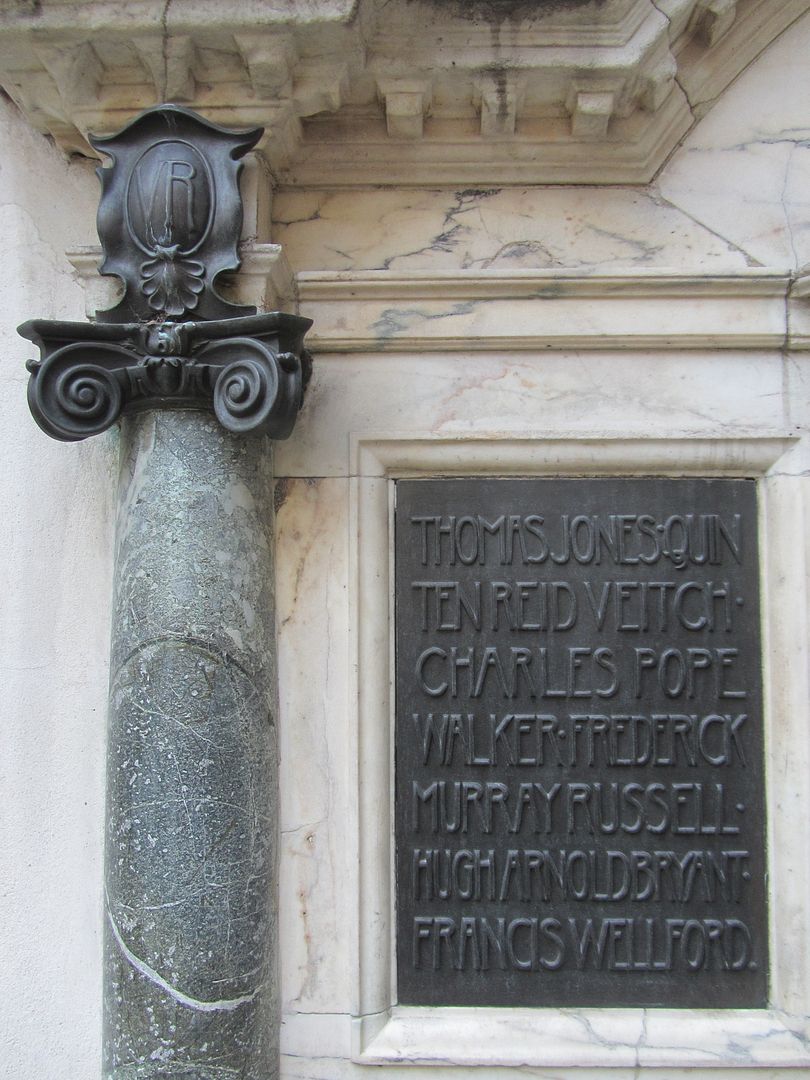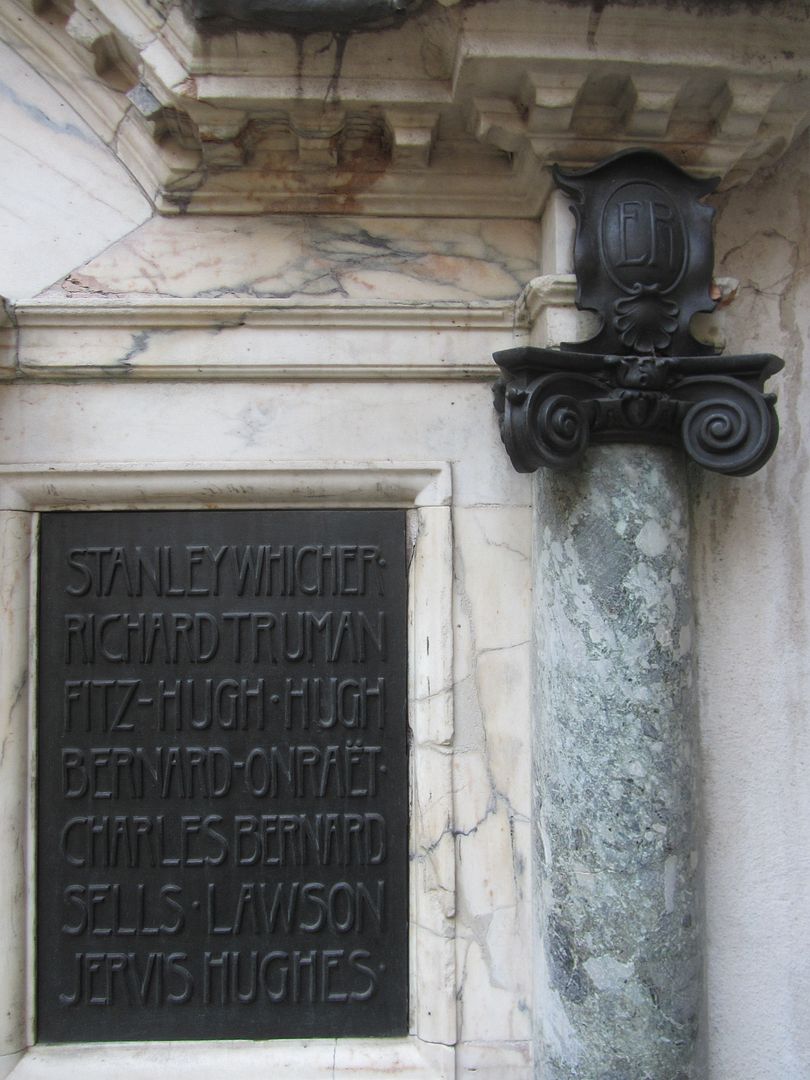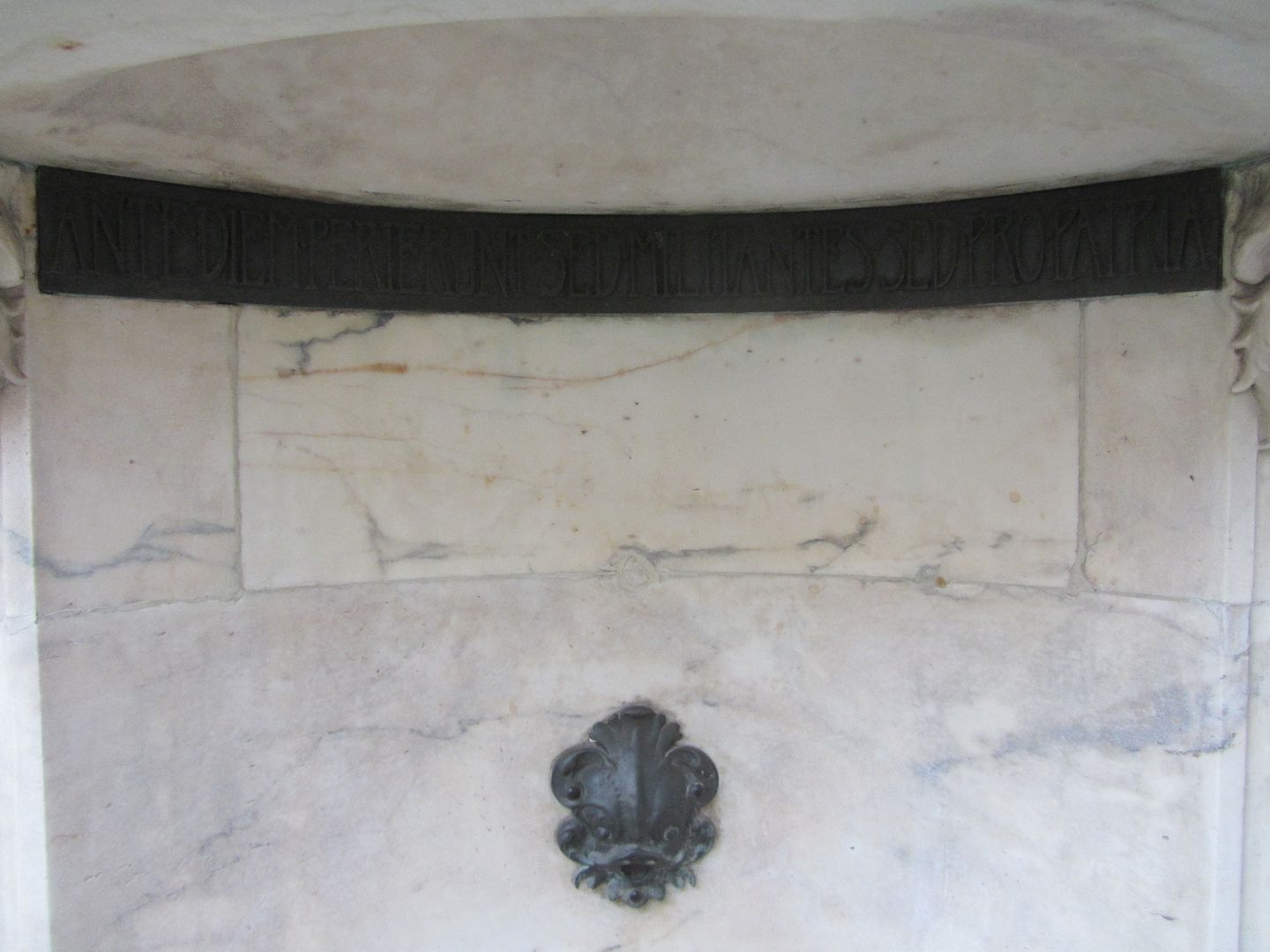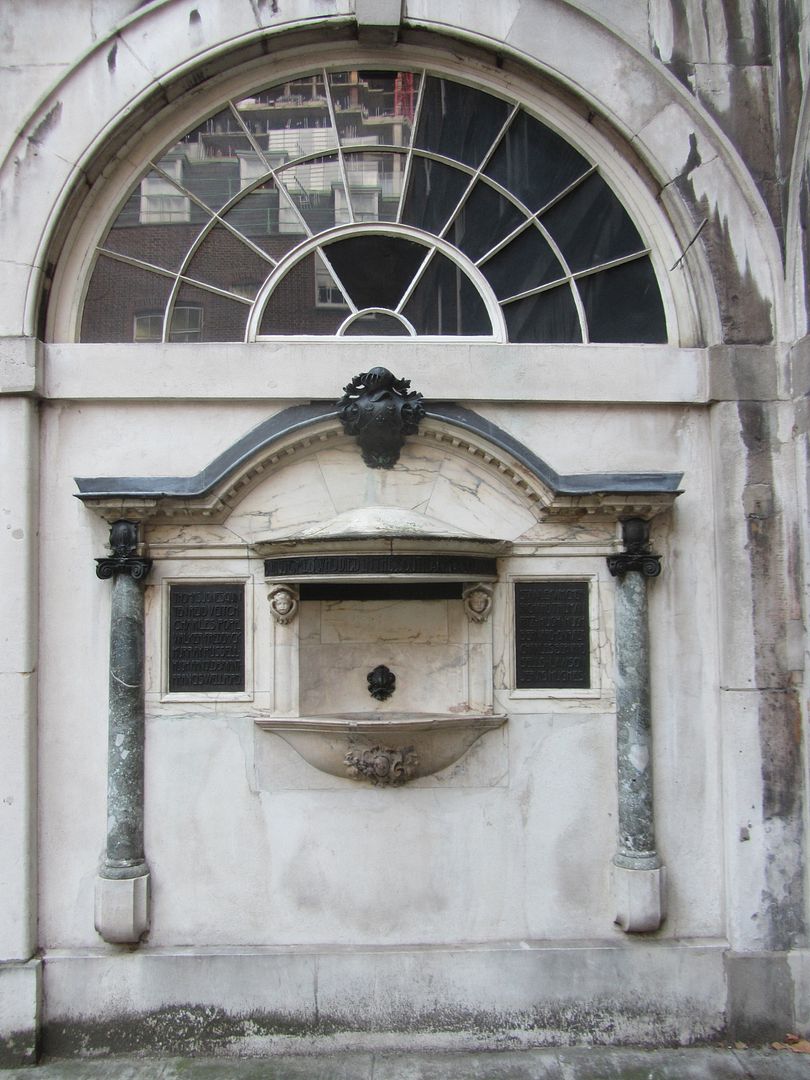|
Welcome,
Guest
|
TOPIC:
Guy's Hospital, Southwark, London 6 years 5 months ago #63050
|
Thomas Jones 18.6.1900
Quinten Reid Veitch 2.2.1902 Charles Pope Walker 5.1.1900 Frederick Murray Russell 29.11.1900 Hugh Arnold Bryant 7.6.1900 Francis Wellford 1.6.1901 Stanley Whicher 27.4.1900 Richard Truman Fitz-Hugh 15.6.1900 Hugh Bernard-Onraët 27.2.1900 Charles Bernard Sells 22.1.1901 Lawson Jervis Hughes 11.6.1900 All the men named above can be found at Guy's Hospital Memorial List (all twentieth century conflicts), with personal information - www.kingscollections.org/warmemorials/guys-hospital/ Below, I've added press reports where I've been able to find mentions of men's deaths. "News was received in Manchester yesterday of the death in South Africa of Thomas Jones, the well-known consulting surgeon, of Manchester, who left England early in the year to take the position of chief surgeon to the Welsh Military Hospital. Mr Jones was honorary surgeon of the Manchester Royal Infirmary, the authorities of which granted him a six months' leave of absence in March last to accept the invitation to proceed to the Cape. A message was received from Springfontein a few days ago stating that the distinguished surgeon was ill, but later information was to the effect that he was better. This morning the news, however, came that he had passed away." North-Eastern Daily Gazette, Thursday 21st June 1900
_____________
"Cape Volunteer M.S.C. - Major Quinten R. Veitch, valvular heart disease, Cape Town, Feb. 2." The Times, Thursday 6th February 1902
_____________
"Major CHARLES POPE WALKER , M.B., of the Royal Army Medical Corps, was in his 40th year, having entered the medical service of the Army as a captain in the Royal Army Medical Corps on July 28, 1886, and obtained the rank of major on the 28th of July last year." The Morning Post, Thursday 11th January 1900
_____________
"Death of a Late Durham Doctor at Bloemfontein. - Dr Hugh Arnold Bryant, whose death is announced to have taken place at Bloemfontein, from enteric fever, was well known in the North. Some years ago he occupied the position of house surgeon at the Durham County Hospital, winning the confidence and respect of the hospital authorities. By the members of the medical profession in the city generally, as well as in other circles in which he moved, he was held in high esteem. The news of his decease has been received with many expressions of regret in the city, where during his residence he made many friends. Dr Bryant, who was a young man, was a son of Dr Thomas Bryant, of Guy's Hospital, London, a distinguished member of the medical profession. The late Dr Bryant went out to South Africa at the end of last year, and was attached to the staff of the Army Medical Corps." Newcastle Weekly Courant, Saturday 23rd June 1900
_____________
"Mr. R. Cary Gilson, headmaster of King Edward VI. Schools, Birmingham, asks us to state that in the list of those "mentioned" in Lord Roberts's despatch, published in The Times of Wednesday, the spelling of the name of Surgeon Captain Francis Wellford, of the 7th Batt. Imperial Yeomanry (who died on June 1 of wounds received at Vlakfontein), should be as now given. In spelling it "Welford" we followed the London Gazette. Mr. Gilson explains that as Captain Wellford's mother (who is resident in Australia) had specially asked to have the mistake, which occurred in the telegram announcing his death, corrected, he applied to the War Office both personally and by letter on the subject, without any effect, as this repetition of the mistake shows." The Times, Saturday 13th September 1901
_____________
"News has been received in Nottingham with deep regret of the death of Mr. Richard Truman Fitz-Hugh, the only son of Mr. Richard Fitzhugh, J.P., of Clumber-crescent, The Park, Nottingham, which has just occurred at Deelfontein, South Africa, from enteric fever. The first intimation of his illness was received in a letter written about three weeks ago, in which the deceased mentioned that he was suffering from shivering fits, but it was not until the receipt of a further communication, which came to hand on Friday morning, that anything serious was apprehended. This was contained in the form of a telegram from Colonel Sloggitt, at Deelfontein (which is situated a few miles from De Aar Junction), and was to the following effect: - "Regret to inform you that your son is dangerously ill with enteric fever." Two days of anxious suspense followed, only to be terminated in the saddest way possible, by another telegram from Colonel Sloggitt received on Tuesday. It ran- "Deeply regret to inform you of the death of your son from enteric fever - an irreparable loss to this hospital, he having endeared himself to all." It was early in February that Mr. R. T. Fitzhugh left this country for South Africa. He was one of the first to be selected by the committee entrusted with the important task of choosing the staff of the Imperial Yeomanry Hospital, and he sailed on the Majestic from Southampton with a number of other doctors and nurses. As will be gathered from the above telegram, his work at the Deelfontein base hospital has been of a valuable character, and the regret felt there at his untimely decease will only be exceeded by that of his sorrowing relatives at home. Mr. R. T. Fitzhugh, who held the degree of M.B., Lond., was, as has been already stated, the only son of Mr. Richard Fitzhugh, J.P., of this city. He was first educated at a private school, and then at the Nottingham High School, subsequently going to the large public school at Shrewsbury, where he completed his education. On leaving Shrewsbury he went to Guy's Hospital, London, where he remained for seven years, and towards the end of his course there filled the position of house physician for the customary period of six months. He then returned to Nottingham, and acted as locum tenens at the General Hospital for a short time, a position which he only relinquished to serve his country in South Africa. Mr. Fitzhugh, who was 28 years of age, was an enthusiastic athlete, having acquired some reputation both as a footballer and cricketer. The news of the termination of a career so full of promise by an attack of the malignant disease, which is accounting for more deaths than the wounds inflicted by the enemy, has evoked much sympathy for his family." Nottinghamshire Guardian, Saturday 23rd June 1900
_____________
"Lieutenant HUGH BERNARD ONRAËT, of the Royal Army Medical Corps, killed in the final engagement at Ladysmith on the 27th February, had not yet seen a year's service, having only entered the medical service of the Army on July 28, 1899. He was born on October 9, 1871, so that he was in his twenty-ninth year." The Standard, Tuesday 6th March 1900
_____________
"SELLS . - On the 22nd Jan., from enteric fever, at the Imperial Yeomanry Hospital, Deelfontein, South Africa, while serving on Medical Staff, CHARLES BARNARD SELLS, of Guy's Hospital, Lance-Corpl. 31st Coy. Imperial Yeomanry, aged 26 years, eldest son of Charles J. Sells, White Hall, Guildford." The Times, Saturday 26th January 1901 C. B. Sells is also named on the Guildford memorial tablet, as a Surgeon Dresser [Hospital Orderly].
_____________
"At Guy's Hospital yesterday, a large company of visitors attended the unveiling of the South African War memorial. The war memorial, which has been subscribed for to the extent of £200 by Guy's men and their friends, takes the form of a drinking-fountain, and is erected in the colonnade of the hospital immediately to the south of the doorway leading to the Astley Cooper Ward. It is 6ft. 6in. wide and 7ft. 6in. high, the design being classic. The base is executed in Sienna marble, the columns on either side in Verte-Antico, with gunmetal Ionic Capitals, and the entablature in Pavanazza. The pediment is surmounted by the Guy's Hospital arms in bronze and enamel. Over the fountain is a canopy supported by cherubs, and this bears the following inscription in gunmetal letters: - "To the Guy's men who died in the South African War, 1899-1901. Ante Diem Perierunt Sed Militantes Sed Pro Patria." The names of those commemorated are arranged in the order of the dates at which they entered the hospital as students. They are: - Thomas Jones, superintendent of the Welsh Army Hospital, died at Springfontein; Quinten Reid Veitch, major Cape Medical Staff Corps, died at Cape Town; Charles Pope Walker, major Royal Army Medical Corps, died in Ladysmith during siege; Frederick Murray Russell, captain New Zealand contingent, killed in action at Rhenoster Kop; Hugh Arnold Bryant, civil surgeon, died at Bloemfontein; Francis Wellford, surgeon-captain 7th Imperial Yeomanry, killed at the battle of Vlakfontein; Stanley Whicher, civil surgeon Natal Field Force, died at Mooi River; Richard Truman Fitz-Hugh, civil surgeon attached to Imperial Yeomanry Hospital, Deelfontein, where he died; Hugh Bernard-Onraët, lieutenant Royal Army Medical Corps, killed at the battle of Peter's Hill on the relief of Ladysmith; Charles Bernard Sells, surgical assistant at the Imperial Yeomanry Hospital, Deelfontein, where he died; and Lawson Jervis Hughes, mounted medical orderly Imperial Yeomanry Field Hospital, killed in action at Kroonstad, on his refusing to surrender. The memorial has been executed from the design of Mr. Frederick Wheeler, F.R.I.B.A., by the Coalbrookdale Company. GENERAL SIR RICHARD HARRISON, who is a governor of the hospital, unveiled the fountain at the request of Dr. FREDERICK TAYLOR, the senior physician; and, in asking Mr. Cosmo Bonsor, the treasurer of the hospital, to accept it and hold it in trust, he remarked that the memorial, which recorded for all time the gallantry and noble work of those who had fallen, would console the relatives and remind those who passed by of the path of duty. Mr. Bonsor accepted the memorial on behalf of the Prince of Wales the president and the governors of the hospital. A short service was afterwards held in the hospital chapel." The Times, Saturday 4th July 1903 |
|
Please Log in or Create an account to join the conversation. |
Moderators: djb
Time to create page: 0.428 seconds
- You are here:
-
ABW home page

-
Forum

-
First Anglo Boer War (1880-1881)

-
Medals and awards

- DCMs for the First Boer War

